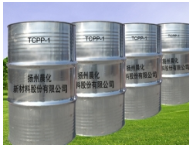Flame retardant is a kind of functional assistant which can give flame retardancy to flammable polymer. It is mainly designed for flame retardancy of polymer materials. There are many types of flame retardants, which can be divided into additive flame retardant and reactive flame retardant according to the use method. At present, the additive flame retardants mainly include organic flame retardants and inorganic flame retardants, halogen flame retardants (organic chloride and organic bromide) and non halogen flame retardants.

Organic is represented by bromine, phosphorus nitrogen, nitrogen, red phosphorus and compounds. Inorganic is mainly antimony trioxide, magnesium hydroxide, aluminum hydroxide, silicon and other flame retardant systems. Reactive flame retardant is a monomer to participate in the polymerization, so the polymer itself contains flame retardant components, its advantages are less impact on the performance of polymer materials, flame retardant lasting.
PP special environmental friendly flame retardant is different from halogen-containing flame retardant. In the process of combustion, dense expanded carbon layer is produced to achieve the purpose of heat insulation and air flame-retardant insulation, without stimulating hydrogen halide gas and black smoke. It is an environmental friendly flame retardant.
1) Mix with PP evenly and then add into extruder. Add 25% - 27% by weight.
2) The processing temperature is suggested to be 180-200 ℃. Due to the good thermal stability of the product, if the specific process needs, it can also be properly improved.
3) It is recommended to use twin-screw extruder when extruding with PP, so as to granulate on parallel and co rotating twin-screw.
In China, there are still many gaps in laws, regulations and application standards in the addition of flame retardants. Many enterprises can save energy and seldom take the initiative to add flame retardants. For the production products, such as flame retardant masterbatch for automobile harness sleeve, the strength, temperature resistance, heavy metal, migration resistance, weather resistance and other indicators will be taken into consideration. Our compliance products can't compete with some small companies even when losing money, because the loss of domestic small customers is serious. Small customers often take cost as the first consideration index, and prefer to sacrifice some necessary performance in material procurement.
In addition, in the implementation of flame retardant related laws and regulations, there are also problems between legislation and law enforcement. Playing cat and mouse game between enterprises and administrative law enforcement has almost become a potential industry rule.